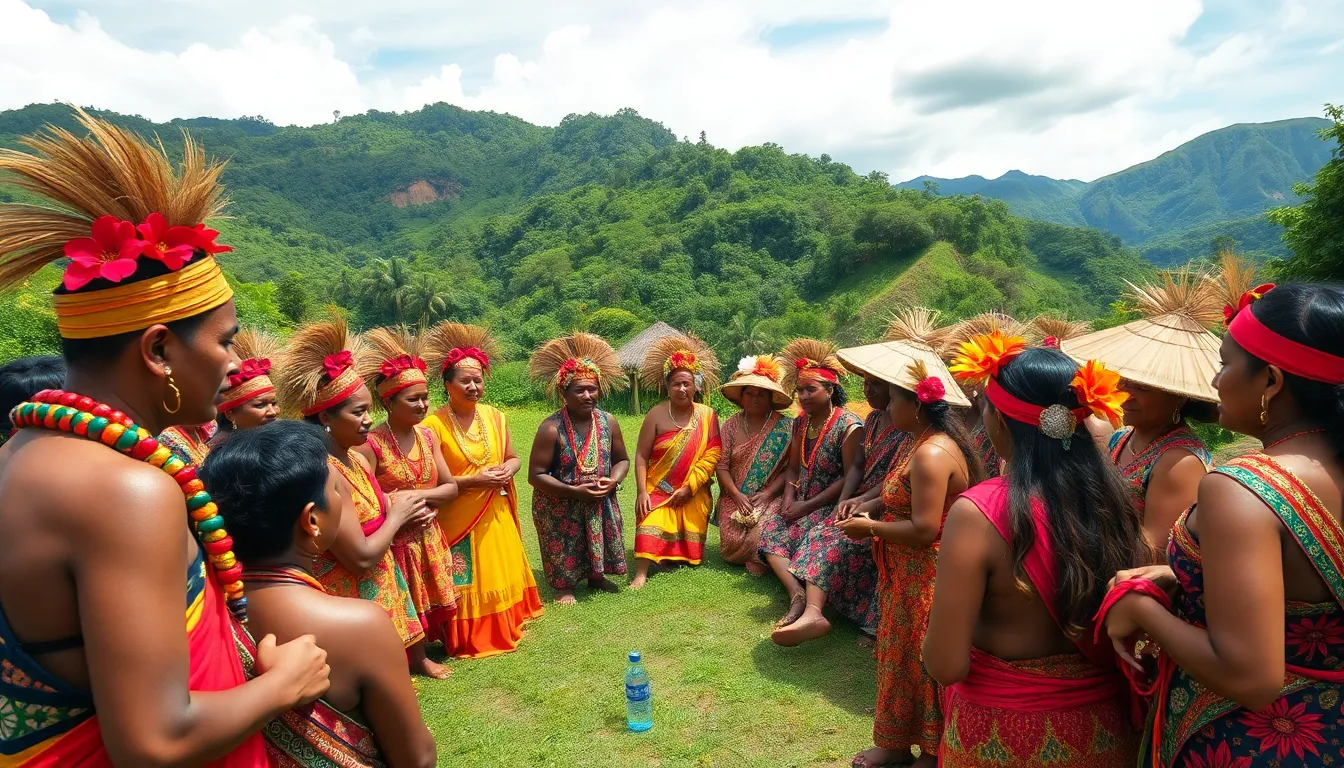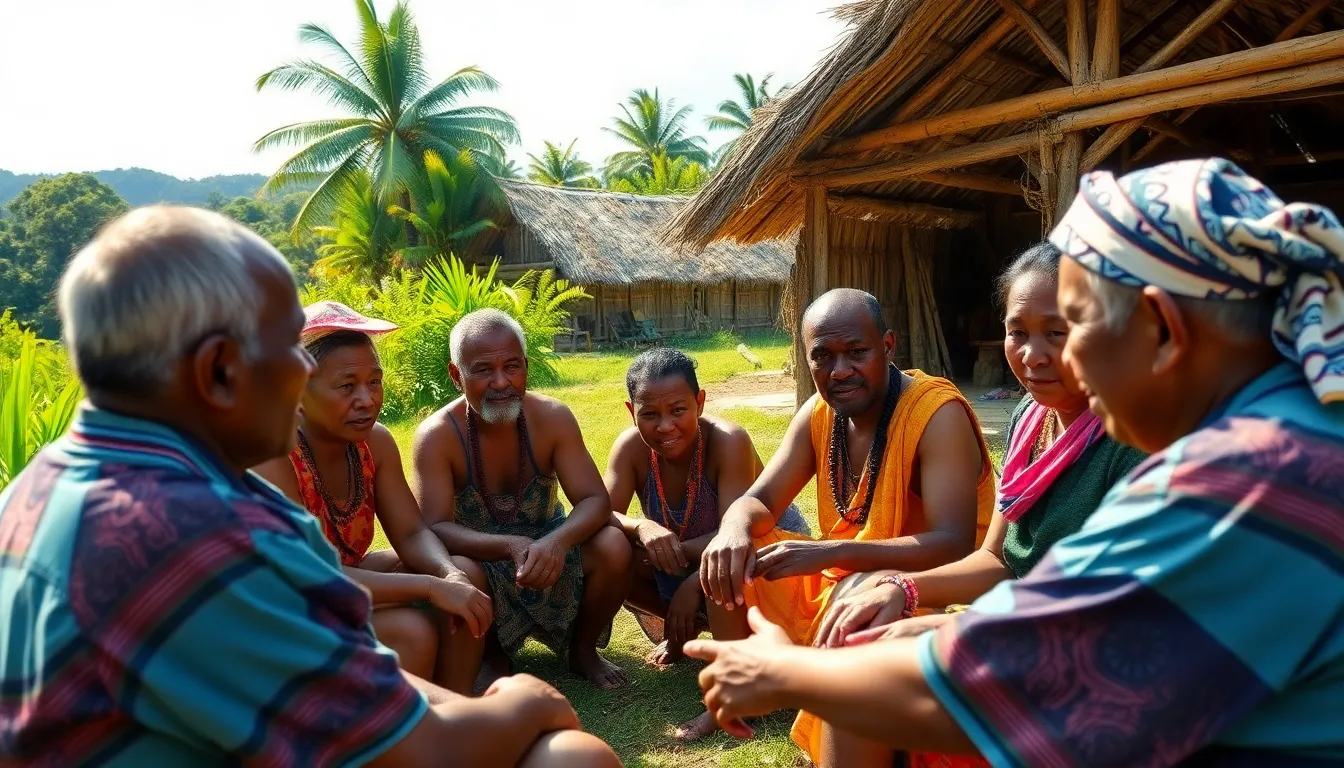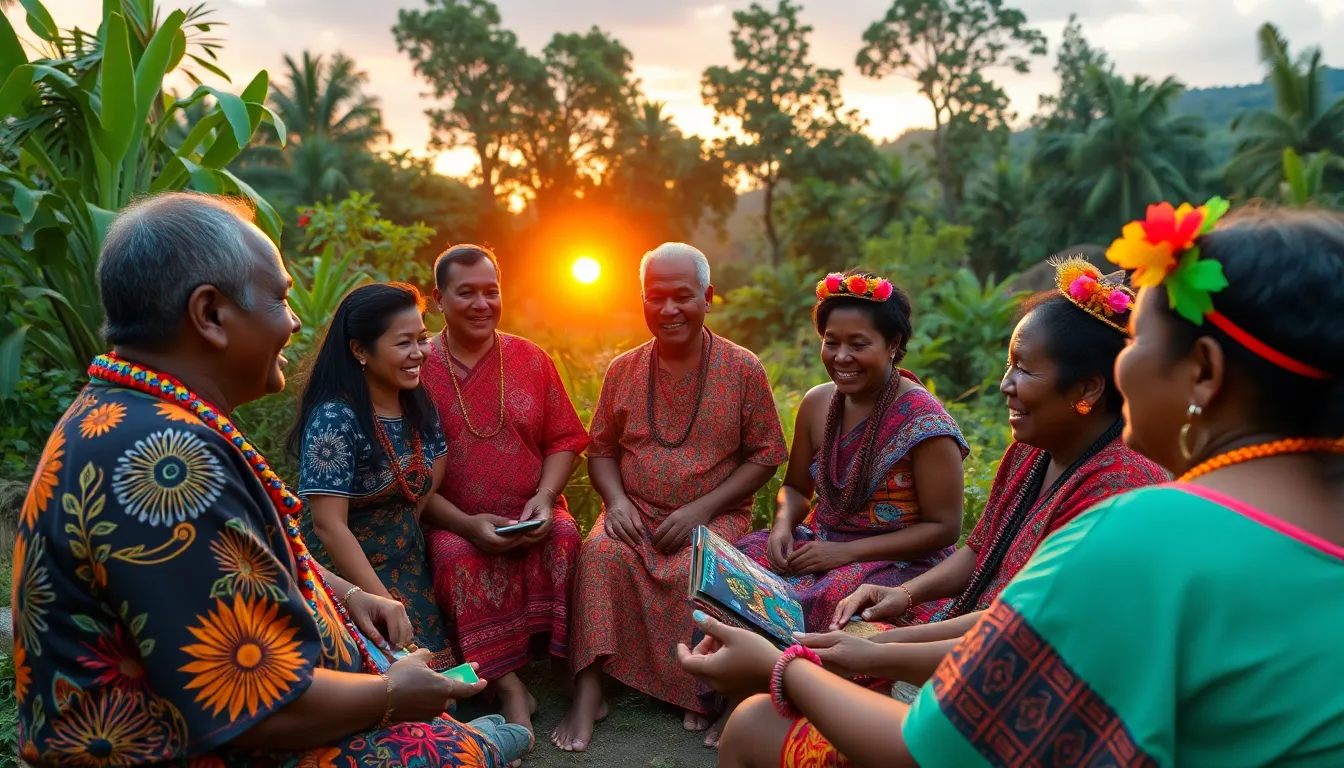Table of Contents
ToggleWhen it comes to time, Papua New Guinea is a fascinating blend of cultures and traditions that make every second count. Nestled in the southwestern Pacific, this vibrant nation operates on its own unique rhythm, where the clock might not always be the main event. If you think time zones are confusing, wait until you dive into the rich tapestry of local customs and practices that shape daily life here.
Overview of Time in Papua New Guinea
Papua New Guinea operates under multiple time zones, reflecting its vast geographical spread. The country mainly follows Papua New Guinea Time (PGT), which is UTC+10:00. Some regions observe variations, such as those on Bougainville Island, where the time differs due to local practices.
Cultural influences significantly affect how time is perceived and used. Traditional customs often prioritize relationships and communal activities over strict adherence to schedules. Meetings may start later than planned, emphasizing the importance of flexibility in social interactions.
Daily activities are marked by natural indicators rather than clock time. For instance, many people organize their day around sunrise and sunset. These natural cues provide a rhythm that aligns with the environment, making time feel more fluid than rigid.
Modernization has introduced a blend of Western timekeeping alongside traditional methods. Urban areas tend to observe stricter time regulations for work and business. This dual existence allows for the coexistence of modernity and tradition, presenting a unique perspective on punctuality.
Traveling between different regions reveals the variation in time observance and local customs. Visitors often experience discrepancies due to the diverse cultural practices that shape daily life. Understanding these nuances enhances appreciation for the country’s distinct relationship with time.
Time in Papua New Guinea embodies a complex interplay of natural elements, cultural traditions, and modern influences. Daily life reflects a unique rhythm that underscores the nation’s vibrant diversity.
Cultural Significance of Time


Time in Papua New Guinea carries profound cultural importance, deeply intertwined with traditional beliefs and the social fabric of communities.
Traditional Concepts of Time
Traditional concepts of time prioritize natural rhythms over strict schedules. Communities often organize daily activities around sunrise and sunset, reflecting their connection to nature. Relationships in Papua New Guinea hold greater weight than punctuality, with gatherings commonly starting later than planned. Elders stress the importance of presence, valuing shared moments over precise timing. This fluid approach fosters strong communal ties, creating a sense of harmony among inhabitants.
Modern Interpretations of Time
Modern interpretations of time blend traditional practices with Western influences. In urban settings, strict schedules and clocks have gained significance, aligning local life more closely with global norms. While modernization promotes punctuality, local customs still prevail, often leading to a unique rhythm that differs across regions. Some individuals balance both approaches, navigating the demands of contemporary life while honoring cultural values. This duality enriches the experience of time in Papua New Guinea, revealing a dynamic interplay between old and new.
Time Zones and Daylight Saving
Papua New Guinea employs multiple time zones, with the predominant one being Papua New Guinea Time (PGT) at UTC+10:00. Some regions, like Bougainville Island, use a different time standard, which can create confusion among travelers and locals alike. The country doesn’t observe Daylight Saving Time, maintaining a consistent time year-round.
Papua New Guinea Time Zone
The time system reflects the geographical and cultural diversity of the nation. PGT serves as the primary reference for most regions, aiding in activities and communication. Villages often function on local time indicators, such as the sun’s position, which can mean variations in daily schedules. Thus, this reliance on natural cues influences how citizens experience and interact with time.
Impact of Daylight Saving on Local Life
Since Papua New Guinea does not observe Daylight Saving Time, routines remain stable throughout the year. This consistency supports traditional customs that prioritize relationships and communal activities. Daily life rarely includes the disruption that clock changes can introduce, so communities engage in social gatherings without time-related stress. As a result, time in Papua New Guinea blends natural rhythms and cultural practices in a seamless manner.
Daily Life and Time Management
Daily life in Papua New Guinea reflects a blend of traditional customs and modern influences. People often navigate their schedules with a unique sense of flexibility, prioritizing relationships over strict deadlines.
Workdays and Relaxation
Workweeks generally run from Monday to Friday, with typical hours from 8 AM to 5 PM. Balancing work commitments and relaxation is essential. Employees often engage in informal gatherings after hours, emphasizing community. Weekends invite families and friends to reconnect, often through outdoor activities or cultural events. Notably, many rural areas adopt a more relaxed approach to work, allowing for longer breaks and socializing within their schedules.
Influence of Climate on Daily Schedule
Climate plays a significant role in shaping daily routines. High temperatures and humidity create a preference for morning and late afternoon activities. People often start their days early to maximize cooler temperatures. Rainy seasons affect outdoor plans, prompting adjustments in scheduling. Additionally, local communities often rely on natural light, leading to earlier wake-up times and earlier bedtimes. The impact of the climate fosters a rhythm that aligns activities with environmental changes, ensuring comfort and productivity throughout the day.




